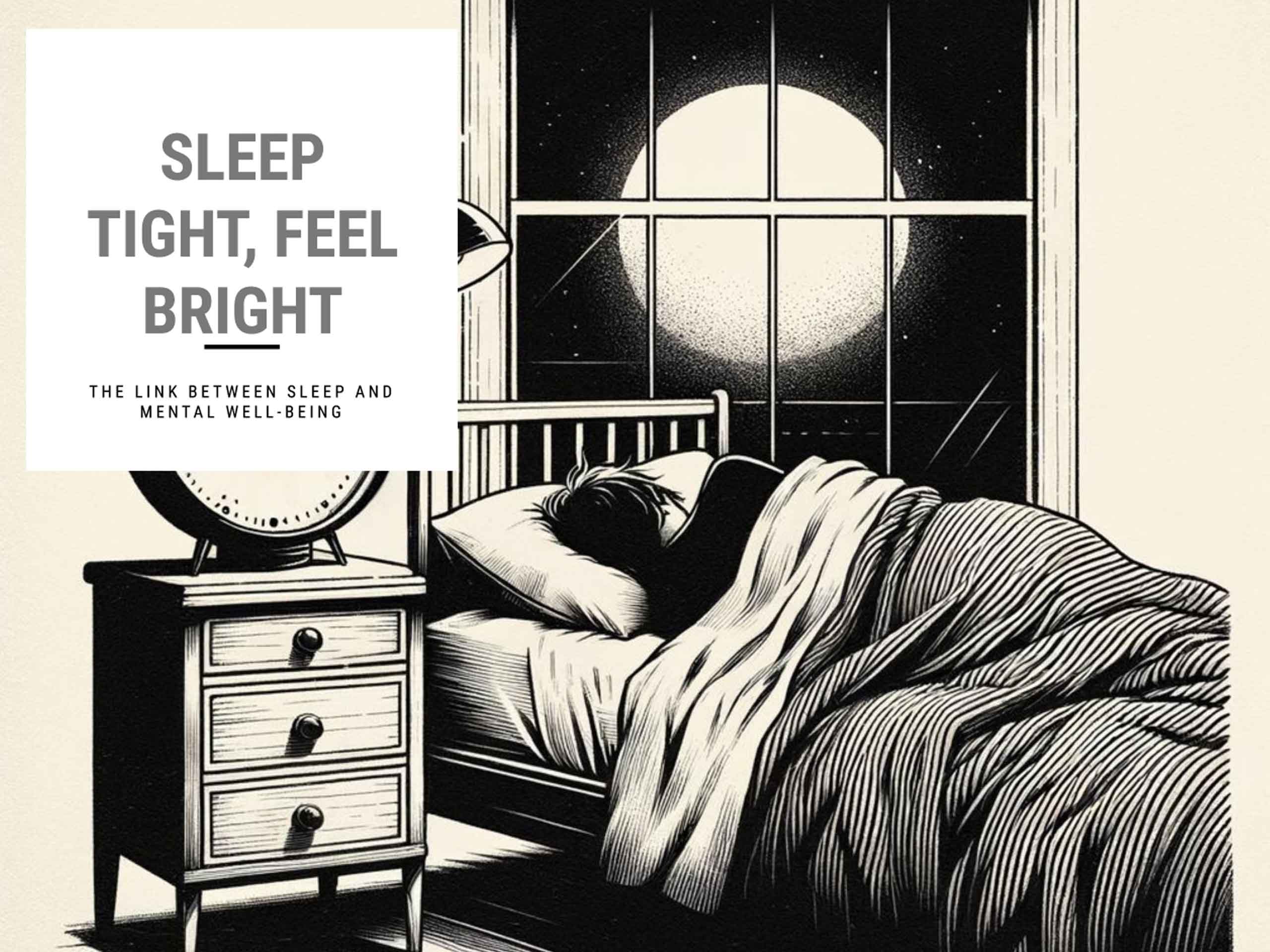Sleep Tight, Feel Bright: The Link Between Sleep and Mental Well-Being

In today's hectic world, the necessity of getting enough sleep is frequently overshadowed by our daily obligations and responsibilities. However, emerging research continues to highlight the profound impact that sleep has on our mental well-being. The adage “sleep tight, feel bright” encapsulates this connection, suggesting that a good night’s rest not only rejuvenates our physical health but also plays a crucial role in our emotional and psychological resilience.
Understanding the Sleep-Mental Health Connection
Sleep and mental health are interrelated and mutually influential. On one hand, insufficient sleep can lead to the deterioration of mental health, contributing to anxiety and depression. Studies have shown that individuals who experience chronic sleep deprivation are at a greater risk for developing mood disorders. The mechanisms behind this connection are multi-faceted; sleep deprivation can disrupt the regulation of neurotransmitters and hormones that are essential for mood stability, such as serotonin and cortisol.
On the other hand, mental health issues can also disrupt sleep patterns, creating a vicious cycle. Conditions like anxiety and depression often manifest in sleep disturbances, making it difficult for those affected to achieve restful sleep. This cyclical relationship highlights the urgent need for increased awareness and proactive strategies to promote better sleep health as a vital component of overall mental well-being.

The Physiological Benefits of Sleep
During sleep, our bodies go through important restorative processes that are necessary for mental wellness. Sleep stages, particularly REM (Rapid Eye Movement) sleep, are crucial for emotional regulation, memory consolidation, and cognitive function. It is during these stages that our brains process experiences and emotions, allowing us to better manage stress and respond to challenges in our waking lives.
Furthermore, adequate sleep enhances our capacity to handle everyday stressors. A well-rested mind is typically more resilient, focused, and better equipped to problem-solve. Conversely, a lack of sleep can lead to impaired judgment, decreased attention span, and heightened emotional reactivity, all of which can exacerbate existing mental health issues.
Practical Strategies for Better Sleep
Recognizing the significant link between sleep and mental well-being, it is essential to adopt strategies that promote healthy sleep habits. Here are several practical approaches:
- Establish a Sleep Schedule: Consistency is key. Go to bed and wake up at the same time daily, including weekends, to regulate your internal clock.
- Create a Restful Environment: Ensure your sleeping space is conducive to rest. This includes a comfortable mattress and pillows, minimal noise, and darkness. Consider using eye masks or white noise machines if necessary.
- Limit Screen Time: The blue light emitted by screens can interfere with melatonin production, the hormone responsible for sleep. Try to reduce screen time at least an hour before bed.
- Practice Relaxation Techniques: Incorporating relaxation methods such as deep breathing, meditation, or gentle yoga can help ease the mind and prepare the body for sleep.
- Limit Stimulants: Be mindful of caffeine and other stimulants, especially in the afternoon and evening, as these can significantly impact your ability to fall asleep and stay asleep.
- Seek Professional Help If Needed: If sleep disturbances persist despite implementing these strategies, consider seeking support from a healthcare professional or sleep specialist.

Conclusion
As we continue to uncover the intricate relationship between sleep and mental health, it becomes increasingly clear that prioritizing sleep is not just a luxury but a necessity for maintaining emotional wellness. By recognizing the importance of restful sleep and adopting habits that foster better sleep hygiene, we can pave the way for improved mental well-being. So, the next time you feel overwhelmed or stressed, remember: a good night’s sleep might just be the most effective remedy. Sleep tight, feel bright!
#SleepTight #MentalWellness #WellBeing #SelfCare #HealthySleep #Mindfulness
Photo: @Freepik, @unsplash, @Microsoft Designer

